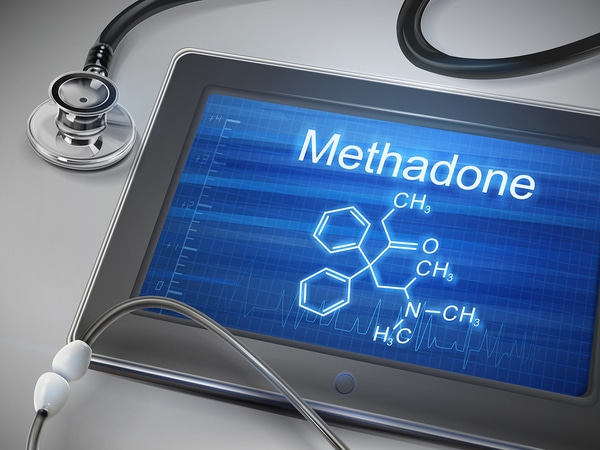While it may seem counterintuitive to use drugs to treat a drug addiction, methadone treatment has been used since the 1960s to treat heroin addiction. It is still considered one of the most successful drug therapies to help those with opioid addictions.

Methadone is a safe and effective way to lessen withdrawal symptoms.
Why Methadone Treatment Is Used for Substance Abuse
When you first stop abusing heroin or other opioids, withdrawal symptoms can be severe. You may experience:
- diarrhea
- nausea
- vomiting
- muscle pain, especially in the back and legs
- cravings
- sudden mood changes
- excessive sweating
- runny eyes and nose
- fever
- insomnia
Because withdrawal symptoms can be so uncomfortable and overwhelming, many addicts fall back into a pattern of substance abuse to relieve those symptoms. Methadone helps ease withdrawal symptoms, giving the support necessary to overcome the temptation to relapse into former destructive behaviors.
How Methadone Works
Methadone is a slow-acting medication that falls under the category of an opioid agonist. In simple terms, methadone works on certain areas of the brain and spinal cord to block the “high” you get from drugs like heroin and lessen the severity of withdrawal symptoms during addiction recovery.
WebMD explains,
“This effect allows people to avoid the physical and psychological highs and lows caused by changing levels of opiates in the blood, decreasing the chance of relapse. In some cases of opiate addiction, methadone treatment may be needed for several years or longer.”
What to Expect with Methadone Maintenance Therapy
Methadone is a slow-acting drug that accumulates in your body, so you might not feel the full effect of treatment for a few days. It is important to take methadone exactly as prescribed. At first, your doctor or addiction specialist will likely have to work with you to adjust your methadone dosage to the right level for you.
The goal of methadone maintenance therapy is to help you continue on your path to sobriety. Some recovering addicts find that they need methadone for a number of years, while others may be able to discontinue methadone therapy earlier than that.
It is important to note that using methadone for substance abuse treatment is not simply exchanging one addiction for another. Though your body may be physically dependent on methadone for a time, that is not the same as addiction. The article “The Truth about Methadone” states:
“While it is accurate to say that a person in treatment is physically dependent on methadone, he is not addicted. He is not experiencing negative consequences from the fact that his body needs the methadone. This is the line between dependence and addiction and between methadone maintenance and heroin addiction.”

The right therapy can help you avoid relapse and enjoy a better quality of life.
Following a Comprehensive Substance Abuse Treatment Plan
Methadone, then, is a valid part of a larger treatment plan to help you on the road to recovery. But it is not the only strategy to consider. The National Institute on Drug Abuse explains that methadone, when combined with behavioral therapy and counseling, can help you to successfully fight a heroin addiction, stating: “Research shows that for some people, integrating both types of treatments is the most effective approach.”
We’re Here to Help
Harris House offers comprehensive substance abuse treatment programs to help you win the war against addiction. Do not wait another day to embrace a better life. Please contact us today to begin the healing process and regain your freedom.








